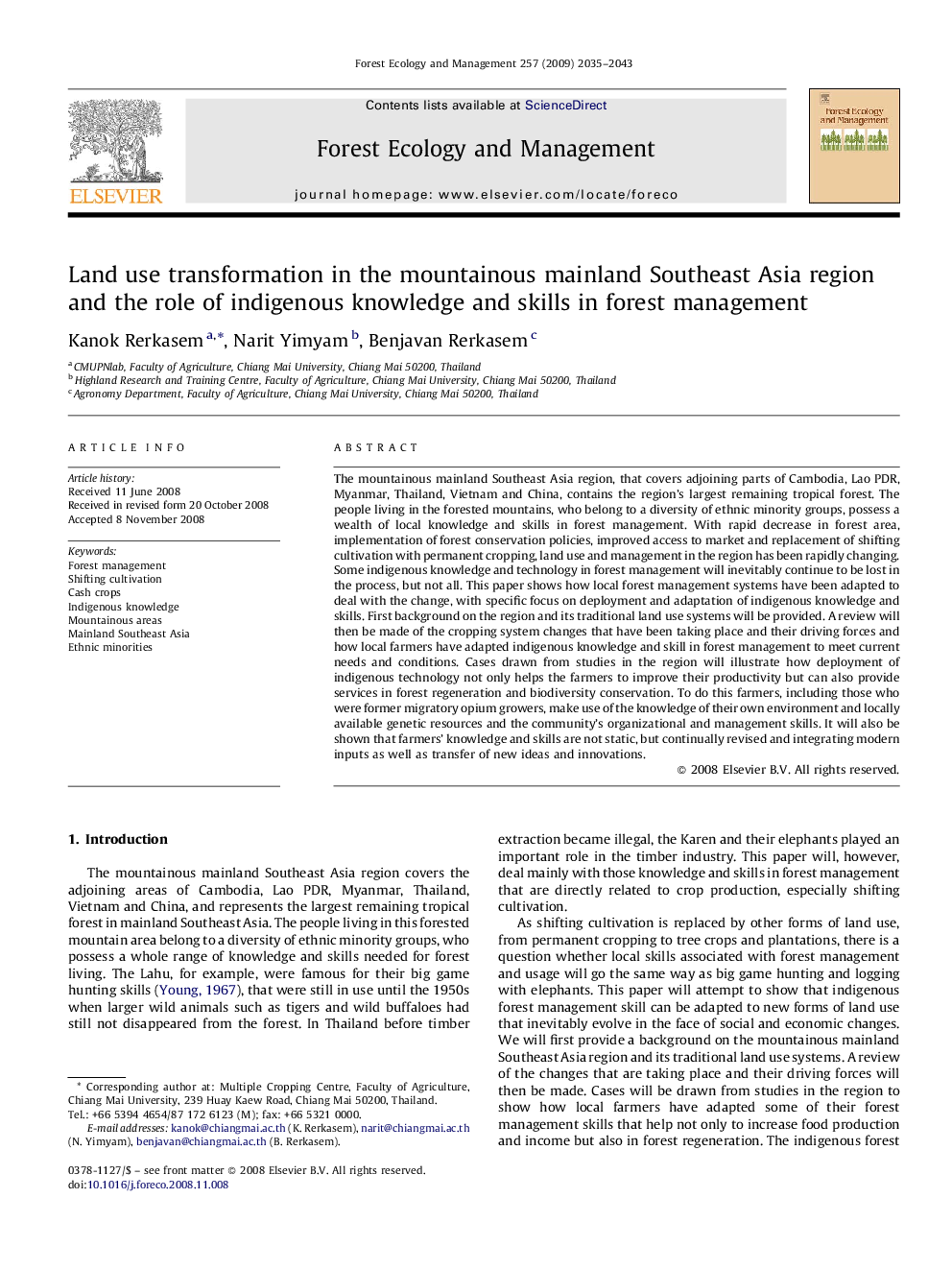| کد مقاله | کد نشریه | سال انتشار | مقاله انگلیسی | نسخه تمام متن |
|---|---|---|---|---|
| 88718 | 159317 | 2009 | 9 صفحه PDF | دانلود رایگان |

The mountainous mainland Southeast Asia region, that covers adjoining parts of Cambodia, Lao PDR, Myanmar, Thailand, Vietnam and China, contains the region's largest remaining tropical forest. The people living in the forested mountains, who belong to a diversity of ethnic minority groups, possess a wealth of local knowledge and skills in forest management. With rapid decrease in forest area, implementation of forest conservation policies, improved access to market and replacement of shifting cultivation with permanent cropping, land use and management in the region has been rapidly changing. Some indigenous knowledge and technology in forest management will inevitably continue to be lost in the process, but not all. This paper shows how local forest management systems have been adapted to deal with the change, with specific focus on deployment and adaptation of indigenous knowledge and skills. First background on the region and its traditional land use systems will be provided. A review will then be made of the cropping system changes that have been taking place and their driving forces and how local farmers have adapted indigenous knowledge and skill in forest management to meet current needs and conditions. Cases drawn from studies in the region will illustrate how deployment of indigenous technology not only helps the farmers to improve their productivity but can also provide services in forest regeneration and biodiversity conservation. To do this farmers, including those who were former migratory opium growers, make use of the knowledge of their own environment and locally available genetic resources and the community's organizational and management skills. It will also be shown that farmers’ knowledge and skills are not static, but continually revised and integrating modern inputs as well as transfer of new ideas and innovations.
Journal: Forest Ecology and Management - Volume 257, Issue 10, 30 April 2009, Pages 2035–2043